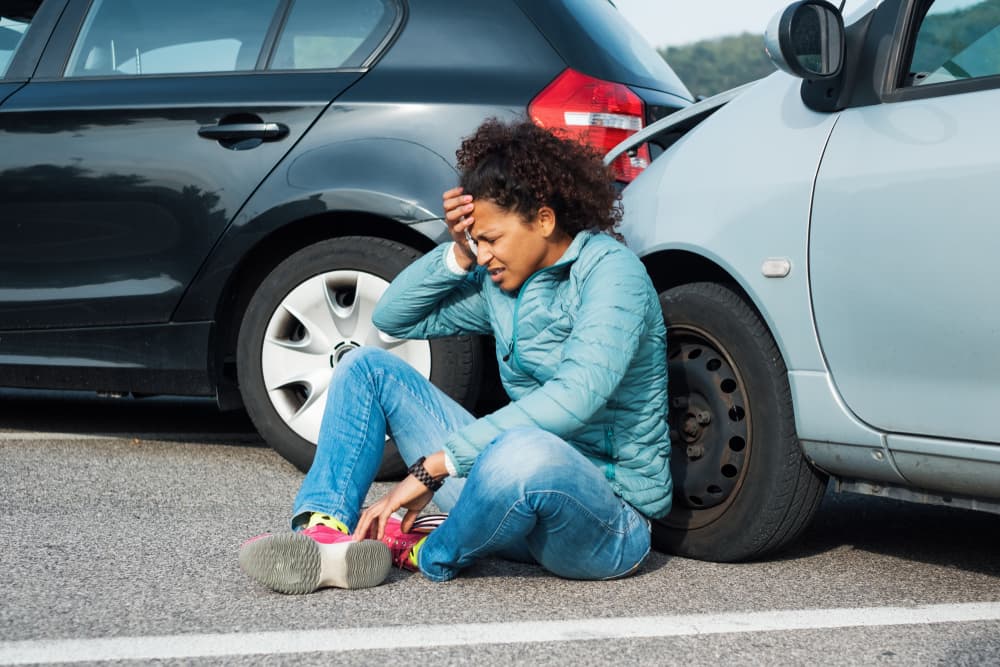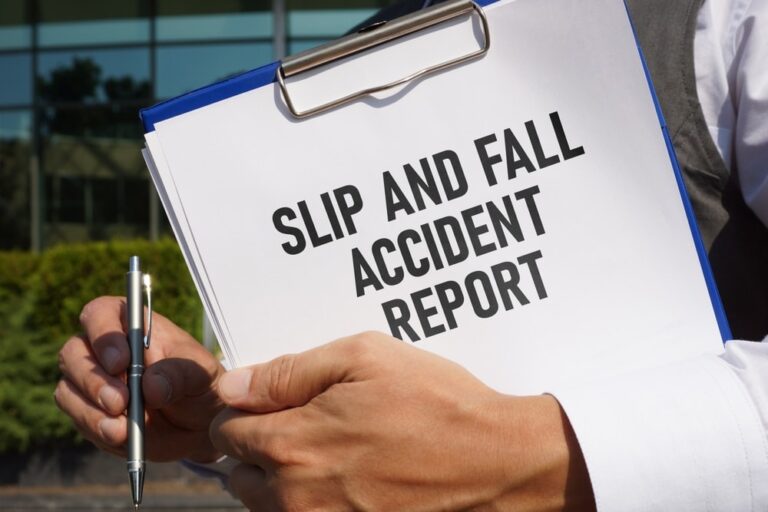Key Takeaways:
- Rear-end collisions are common in Wisconsin, often caused by distracted driving, tailgating, speeding, weather conditions, or brake failures.
- These crashes can lead to severe injuries like whiplash, concussions, and spinal damage, along with costly vehicle repairs.
- Emotional trauma and long-term financial burdens, such as medical bills and lost income, often follow these accidents.
- Fault may lie with the trailing driver, but lead drivers can also be responsible under certain circumstances; Wisconsin applies comparative negligence laws.
- A personal injury attorney can help prove fault, negotiate with insurers, and pursue fair compensation.
What Counts as a Rear-End Accident?
Rear-end collisions are one of the most common types of automobile accidents, occurring when a vehicle crashes into the car in front of it.
These accidents can happen at high speeds on highways or at low speeds in stop-and-go traffic.
Rear-end collisions can lead to severe injuries, extensive property damage, and long-term health issues.
Wisconsin Car Accident Statistics
On average, Wisconsin sees 136,000 vehicle crashes every year. These crashes cause 500 fatalities and injure more than 30,000 people.
Whether due to increased traffic congestion, road conditions, or changes in driver behavior, these collisions demand attention and understanding.
What Are the Leading Causes of Rear-End Accidents?
Distracted Driving
Distracted driving is one of the leading causes of rear-end collisions. According to the Wisconsin Department of Transportation, the latest data identifies roughly 10,000 distracted driving-related crashes every year.
Texting, using a navigation system, eating, or even conversing with passengers can divert a driver’s attention from the road.
When attention is drawn away from driving, reaction times slow, making it difficult to respond to sudden changes in traffic or road conditions.
Tailgating
Following too closely or tailgating is another common cause of rear-end car crashes. Tailgating does not allow enough distance for the following driver to stop safely if the lead vehicle suddenly brakes.
This behavior often stems from impatience or aggressive driving and can easily lead to accidents.
Maintaining a safe following distance based on speed and road conditions can prevent these collisions.
Weather Conditions
In Wisconsin, weather conditions can change rapidly, which plays a significant role in rear-end collisions.
Slippery roads due to rain, ice, or snow can affect braking distance and vehicle control. Fog and heavy rain can reduce visibility. Drivers need to exercise extra caution in adverse weather, adjusting speed and following at a safe distance to match the conditions.
Speeding
Speeding is a significant contributing factor to rear-end collisions in Wisconsin, with alarming statistics emphasizing its seriousness.
The latest data shows that in just one year, Wisconsin recorded 17,597 speed-related crashes, resulting in 186 fatalities and 6,871 injuries. Speeding accounted for 14 percent of all crashes and 34 percent of all fatal crashes during the year.
Interestingly, male drivers, particularly those between 16 and 24, accounted for nearly 66 percent of all speed-related crashes. Inexperience and a tendency towards risky behavior are potential factors among these young drivers.
The timing and location of these accidents reveal crucial insights. Speed-related crashes in Wisconsin tend to peak during the winter months, with February and December notably high-risk due to drivers driving too fast for weather conditions.
On a daily basis, these accidents are most common between 7 a.m. and 8 a.m and 3 p.m. and 5 p.m., possibly because of drivers rushing to and from work.
Brake Failure or Malfunction
Brake failure or malfunction is less common but still a notable cause of rear-end collisions. Regular vehicle maintenance is important to ensure that brakes function properly.
A sudden brake failure can leave a driver unable to stop, leading to a collision with the vehicle ahead.
Vehicle owners must pay attention to any signs of wear or issues with their brakes and seek professional service when needed.
These statistics are a stark reminder to obey speed limits and exercise caution, particularly in inclement weather, high-risk locations, work zones, and school zones.
Adhering to these safety practices including regular maintenance on your vehicle is not just about avoiding a ticket; it preserves life and well-being on Wisconsin’s roads.
Can the Lead Driver Be At Fault for a Rear End Accident?
The lead driver can cause a rear-end accident, although it’s less common.
Typically, the driver who rear-ends another vehicle causes the crash, as they probably followed too closely or did not pay attention.
However, the lead driver’s actions might contribute to or even cause the collision.
Here are 6 ways the lead driver may be found at fault in a rear-end accident:
- Reckless or sudden braking. If the lead driver brakes suddenly and without reason, especially if they do so in an attempt to “brake check” or intentionally cause a collision, they may be considered at fault.
- Failure to maintain brake lights. If the lead driver’s brake lights are out and they fail to signal or brake suddenly, the trailing driver may not have adequate warning, and the lead driver may bear partial or full liability.
- Illegal or sudden maneuvers. If the lead driver makes an illegal or unexpected maneuver, such as a sudden lane change without signaling, you can hold them responsible for the resulting collision.
- Backing up. If the lead driver reverses their vehicle into the car behind them, they would likely be considered at fault for the collision.
- Broken down vehicle. If a vehicle breaks down and the driver fails to provide adequate warning to other drivers (e.g., not using hazard lights, not moving to the shoulder if possible), you can hold them at fault if you rear-end them.
- Not adhering to traffic laws. You can hold lead drivers who fail to adhere to traffic laws, such as yielding the right-of-way when required, at fault for a collision.
How Do You Prove Fault in a Rear-End Accident?
Determining fault in a rear-end accident often requires a detailed analysis of the specific facts and circumstances of the accident.
In some cases, both drivers may share fault, and Wisconsin’s comparative negligence laws may apply to reduce the compensation a party can recover based on their percentage of fault.
Individuals involved in a rear-end crash where the parties dispute fault should consult a personal injury attorney familiar with Wisconsin’s traffic laws to assess their specific situation and legal options.
Understanding the common causes of rear-end collisions is the first step toward prevention.
By avoiding distractions, maintaining a safe following distance, adjusting to weather conditions, and ensuring proper vehicle maintenance, drivers can significantly reduce the risk of a rear-end collision.
In Wisconsin, where urban and rural traffic meets varied weather conditions, these precautions ensure the safety of all Wisconsinites.
What Are the Consequences of Rear-End Accidents?
The far-reaching and often underestimated ripple effects of these incidents range from physical injuries to emotional trauma and financial struggles.
Highlighting these consequences brings attention to the importance of road safety and the need for legal protection to assist victims in navigating the complex aftermath of a collision.
Physical Injuries
Rear-end collisions can result in severe physical injuries, even at low speeds. One of the most common injuries is whiplash, a soft tissue injury to the neck caused by a sudden, forceful jerk of the head.
This can lead to persistent pain, stiffness, and mobility issues. Other potential injuries include back injuries, concussions, spinal damage, and fractures, all of which can have lasting effects on the victim’s health and well-being.
Vehicle Damage
The impact of a rear-end collision can cause significant damage to the vehicles involved.
The rear car may suffer damage to the front bumper, grille, headlights, and hood, while the crash may damage the front car’s trunk, rear bumper, and tail lights.
This type of damage can lead to costly repairs and even render the vehicle inoperable, adding further inconvenience and financial strain to the already stressful situation.
Emotional Trauma
Beyond the visible physical injuries and vehicle damage, rear-end crashes often leave emotional scars.
Victims may experience anxiety, depression, or post-traumatic stress disorder (PTSD) following the accident.
The fear of driving, constant flashbacks to the incident, and a general sense of vulnerability can have a lasting impact on the victim’s daily life.
Emotional healing often requires a long, arduous process of therapy or counseling.
Long-Term Financial Impact
Rear-end collisions are not just momentarily disruptive, they can have a profound long-term financial impact.
Medical bills for treating physical injuries can mount quickly, particularly if you need ongoing treatment or rehabilitation.
Additionally, the costs of vehicle repairs or replacement, rental cars, and potential increases in insurance premiums can add to the financial burden.
Loss of income due to time off work for recovery further compounds these costs. The overall financial impact can be staggering, leading to financial instability for many individuals and families.
Legal Rights and Protections
In Wisconsin, figuring out who is at fault in a rear-end collision is the decisive factor for liability purposes.
Wisconsin operates under a comparative negligence system, meaning that a party may still recover damages even if partially at fault, provided they are less than 51 percent responsible.
Understanding the legal principles of negligence, duty of care, and breach of duty can be complex but it will determine how much you receive from your rear-end accident.
Working with Law Enforcement and Insurance Companies
Following a rear-end impact, contact law enforcement and cooperate with their investigation.
Filing an accurate police report is instrumental in the claim process. Insurance companies may attempt to minimize the claim’s value.
Knowing your rights and preparing to negotiate with the insurance adjusters, or instead, hiring an attorney to do the work for you, can make a significant difference in the outcome of your personal injury claim.
When to Contact a Personal Injury Attorney
After a rear-end collision, particularly one resulting in serious injuries or significant property damage, contact a personal injury attorney for a free consultation.
An attorney with experience in this area can explain your legal options, gather essential evidence, negotiate with insurance companies, and advocate on your behalf.
Seeking legal counsel sooner rather than later.
Legal Process and Possible Compensation
The legal process following a rear-end car wreck may involve negotiations with insurance companies, pre-trial settlements, or proceeding to court.
You need a lawyer who understands the process, knows what to expect at each stage, and adheres to legal deadlines such as the statute of limitations.
Compensation can include past and future medical expenses, property damage, lost income, future earning capacity, and pain and suffering.
The amount and type of compensation depend on the severity of the injuries, the clear establishment of fault, and the quality of legal representation.
How Pemberton Personal Injury Law Firm Can Help You Today
- Commitment to securing fair compensation. Pemberton Personal Injury Law Firm is dedicated to assisting clients in obtaining the compensation they need, having won over one million dollars in awards and settlements.
- Rear-end accident experience. Pemberton Personal Injury Law Firm has successfully managed numerous rear-end collision cases in Wisconsin. Our team will investigate the accident and build a strong case.
- Personalized approach to each case. We recognize that each client and rear-end accident is unique. We tailor our legal strategies to meet your specific needs for compensation and align our representation with your goals.
- Free consultation and case evaluation. Our law firm offers a free consultation and case evaluation for potential clients to discuss their situation. This no-obligation consultation allows clients to make informed decisions without financial pressure.
Contact a Wisconsin Rear-End Accident Lawyer

If you or a loved one were in a rear-end car accident, don’t hesitate to reach out to Pemberton Personal Injury Law Firm.
Our skilled team is ready to investigate your case and advocate for your rights. Contact us today for a free consultation at (608) 448-6242.
 Calls Answered 24/7
Calls Answered 24/7



